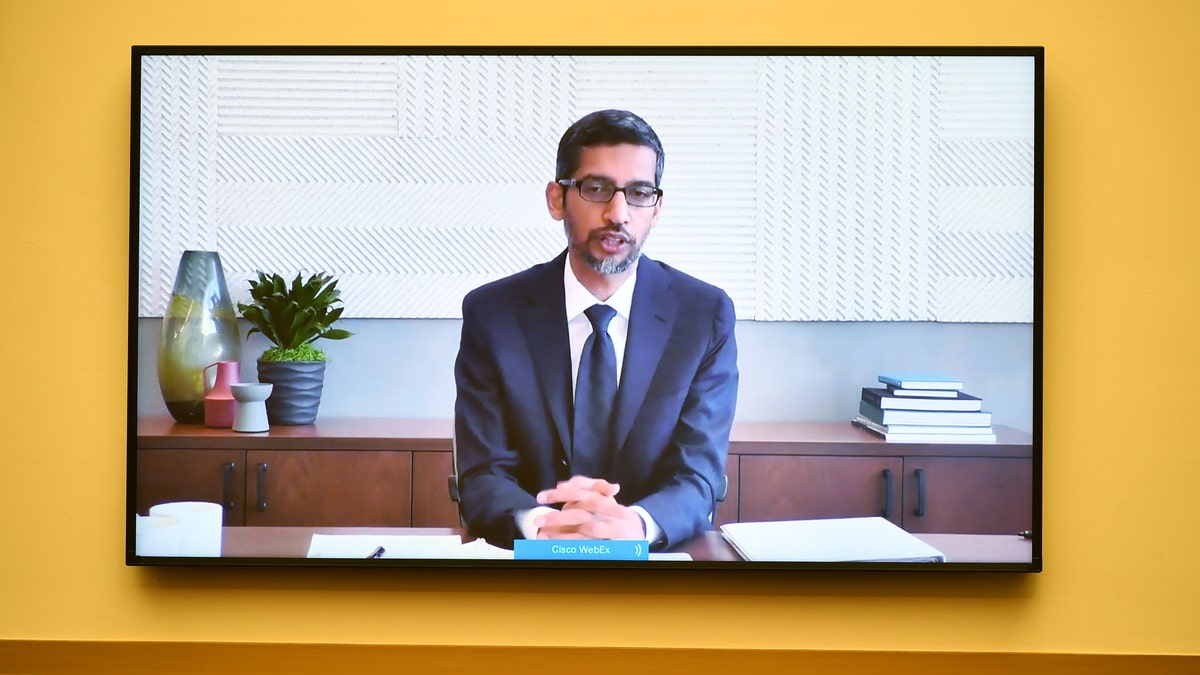Rep. Gaetz questions Google about anti-cop business decisions
Florida Republican Rep. Matt Gaetz questions Alphabet CEO Sundar Pichai during House hearing.
Google now sets a time limit on data used by police for tracking suspects, the CEO said at Wednesday's congressional hearing with tech giants.
The data is used for a so-called "geofence warrant," which taps into a massive Google database that tracks where you go anonymously. It’s part and parcel of a trend by tech companies to track where you go, what you eat, and what you buy, among a host of other tracking information.
Though originally designed by Google as an innocuous way to provide the “Location History” for any user who opts in to see where they’ve been, it is now reportedly being used by law enforcement to track criminal suspects.
BIG TECH BACKLASH: APPLE, GOOGLE, FACEBOOK, AMAZON CEOS GRILLED ON CAPITOL HILL
The warrant can compel Google “to disclose the records for any devices in a certain area during a specified time period. After that, for certain accounts, the government may obtain additional location data and subscriber information,” according to Lawfare Institute, which posted a blog on the issue in cooperation with Brookings.

Google CEO Sundar Pichai speaks via video conference during the House Judiciary Subcommittee on Antitrust, Commercial and Administrative Law hearing on Online Platforms and Market Power in the Rayburn House office Building, July 29, 2020 on Capitol Hill in Washington, DC. (Photo by Mandel Ngan-Pool/Getty Images)
Congressman Kelly Armstrong, R-N.D., addressed this issue during the hearing on Wednesday in a question directed at Google CEO Sundar Pichai.
“There are news reports that law enforcement has made increasing use of what are called geofence warrants and [these] allow authorities to compel technology companies to disclose location records for any device in a certain area at a particular time,” Armstrong said.
TECH ISSUES DELAYED BIG TECH HEARING AS APPLE, AMAZON, GOOGLE, FACEBOOK AWAITED GRILLING
He continued. “Court filings suggest that Google received a 1,500 percent increase in geofence requests from 2017 to 2018 and a 500 percent increase from 2018 to 2019.”
Armstrong went on to say that the Fourth Amendment requires probable cause and specificity. But geofence warrants require neither, he said, adding that he believes the location information should be considered part of the Electronic and Communications Act, which was enacted by Congress to expand existing restrictions on government telephone wiretaps to include transmissions of electronic data.
“Do you agree?” he asked Pichai, referring to the measure.
AMERICANS, ESPECIALLY REPUBLICANS, SAY SOCIAL MEDIA COMPANIES TOO POWERFUL
“This is why we issued transparency reports, because we think it’s an important area for Congress to have oversight,” Pichai said.
“We recently made a change by which we automatically delete location activity after a certain period of time by default for our users,” he said.
In a June 24 blog post, Pichai said that Google will auto-delete Location History after 18 months by default. He also said that Web & App Activity auto-delete will default to 18 months for new accounts.
CLICK HERE TO GET THE FOX NEWS APP
However, for those who already had Location History and Web & App Activity turned on, the settings won't change, according to Google, though they will be reminded about the auto-delete controls via notifications and emails, according to the company.





















